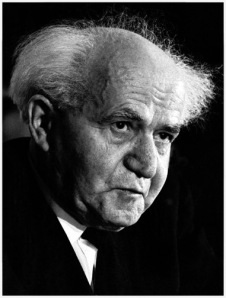At startups, strategies evolve. So do their entrepreneurs
Only 6 months ago, I became the CEO of a startup called PopTok, a company that had some interesting insights about the film business, but a strategy that would not work. AnyClip was born from the vestiges of this company and we swiftly adopted the idea that we would create a platform than enabled anybody to find “any moment from any film ever made instantly and legally.”
Successful managers solve problems for their customers in order to create measurable economic value. In our case, we believe the best method to stanch YouTube users’ blatant copyright infringement violations was to build a more comprehensive and useful service for reliving film moments. This service will operate as a gigantic lead-generation mechanism for the legal consumption of full-length and short-form video-on -demand . We adapted our rhetorically catchy vision –any moment from any film ever made — so that we would inspire the studio ecosystem to embrace a new form of library discovery . AnyClip combats the looming piracy crisis that threatens to irreparably harm the movie industry.
During the summer, we were accepted into TechCrunch 50 — a conference that echoes the film industry by billing itself as the “Sundance of Startups.” In order to launch at TC50, AnyClip had to abide by their rule of complete secrecy. Only our investors and employees knew we were selected. This meant that we could not share our prototype with any of our constituencies including content owners.
The TechCrunch guidelines presented a conundrum. I wanted to use their platform to publicize our company’s strategy. However, I also worried that we would neglect a fundamental principle of running a startup — treat your customers better than anybody on Earth. How would the studios feel about us demoing the service without allowing them to preview it?
In general, we have been very warmly received by our partners in Hollywood for which we are gratified. Actors, directors, agents, managers and studio executives demonstrate optimistic intrigue about a legal database of movie moments that promotes the rich heritage of film. That said, the industry expects AnyClip to adapt to its cultural norms . Even giving a demonstration of our service with film clips requires the permission of the studios. Legally, these demos are well-protected by the fair use statutes, but invoking them is clearly considered disrespectful. That was ignorant, and I’ve had to adjust my thinking. Hollywood has a business culture that asks for permission. Internet companies tend to use legal arguments to justify their business practices and damn the values of the traditional industries that preceded it.
Perhaps total disruption with potential legal justifications can work (see the Digital Millienium Copyright Act and so-called ISPs YouTube, MetaCafe Daily Motion, Veoh, and my old company Bolt ) , but I neither condone nor intend to deploy these practices. Finding any moment from any film ever made is a seductive economic proposition only if it discourages piracy and promotes the legal consumption of content.
I love films. I want the movie industry to thrive so people like Spike Jonze and Peter Jackson can continue to make magical moments for me to watch and relive. AnyClip is designed to grow the home video market (VOD, BluRay, DVD etc) by creating discovery and search capabilities that were not technically possible even a few years ago.
Imagine a comprehensive database that ensures that every watched scene is one click away from a purchase or rental of the full-length film. Consider YouTube and IMDB with a rich, searchable, and legal database to integrate into their sites . AnyClip can do much to help grow the industry, but only if we earn the trust of the rights holders without compromising the needs of their audiences.
These are AnyClip’s challenges. We have to start somewhere and at the beginning we will not be able to license entire libraries. But make no mistake, the rediscovery of every film ever made is our vision. Massive legal consumption of every film ever made is our dream.
Filed under: Business of Media, early stage | Tagged: Anyclip, Bolt, clip economy, clips, DailyMotion, disney, movie studios, movies, paramount, peter jackson, sony, spike jonze, techcrunch50, universal, Veoh, YouTube | Leave a comment »




